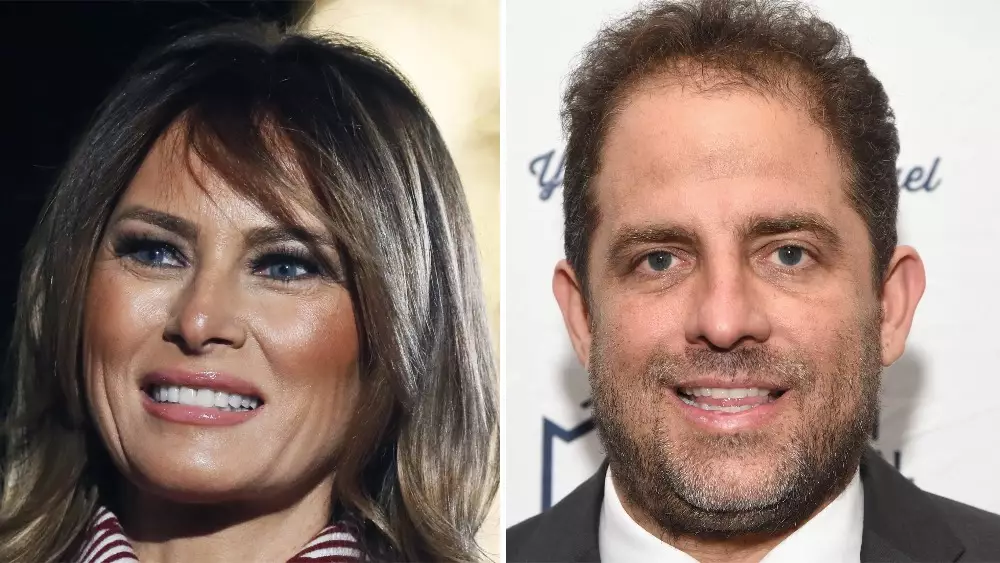The news of a documentary dedicated to Melania Trump has stirred up substantial interest and scrutiny since Amazon confirmed its exclusive licensing deal for the project. Directed by Brett Ratner, a figure known equally for his cinematic achievements and controversies, this film promises to deliver a unique peek behind the curtain of the former First Lady’s life and role during her husband’s presidency. This article delves into the implications, background, and potential impact of this highly anticipated documentary while also addressing the criticisms surrounding both the subject and the director.
Brett Ratner, often recognized for his work on entertaining blockbusters like the “Rush Hour” series, has returned to the forefront of documentary filmmaking. Filming of this project commenced shortly after Donald Trump’s second electoral victory, promising to unveil aspects of Melania Trump that the public has not widely seen. However, the choice of Ratner as director is particularly contentious due to his previous fall from grace amid allegations of sexual misconduct. This adds a layer of complexity yet also criticism regarding the credibility and ethical considerations surrounding the production.
Amazon’s decision to back this documentary underscores its broader strategy to diversify content. By securing a high-profile project associated with the Trump family, Amazon aims to attract both supporters of Donald Trump and those interested in political narratives. The tech giant, led by Jeff Bezos, has been walking a fine line between corporate interests and public perception, especially as its founder openly praised Trump’s political comeback on social media. This documentary, then, is not merely a production; it’s a strategic maneuver in a polarized cultural landscape.
In analyzing Melania Trump’s context, it’s essential to note her complex identity as a Slovenian immigrant, former model, and businesswoman. Having many facets to her personal narrative, her tenure as First Lady saw her launch initiatives, notably “Be Best,” focusing on the wellness and safety of children. Nevertheless, reception of her actions was often mixed; supporters appreciated her focus on issues like online safety amidst growing cyberbullying, while critics labeled the initiative as insufficient in the context of broader political turmoil. This documentary promises to further dissect Melania’s public persona and private intentions, aiming to explore if her involvements were earnest or performative.
This documentary arrives at a time when media portrayals of public figures, especially those linked to the Trump administration, face increasingly rigorous scrutiny. Critics argue that the documentary might serve as a glorified propaganda piece, detracting from discourse around significant issues like the Trump presidency’s controversial policies and the socio-political environment of the time. Furthermore, Ratner’s direct involvement raises ethical concerns for many who feel he should be sidelined—given the weight of his past allegations—making it a contentious choice in such a politically sensitive project.
As we await the documentary’s release, scheduled for the latter half of next year, anticipation grows around not only the film’s content but also its impact on public perception of Melania Trump. The transparency that Amazon claims it will provide could either humanize her or further entrench her in the ongoing debates surrounding the Trump legacy. With promotional leaks expected as filming wraps, Amazon has hinted at providing an unprecedented look at Melania’s life. It remains to be seen whether this documentary will fulfill that promise or become another elongated chapter in the divisive narrative surrounding the Trump family.
In summation, the documentary focusing on Melania Trump encapsulates a myriad of themes—from celebrity culture to political identity and the ethics of storytelling in an era rife with controversy. As unveiled insights clash with the frameworks of public perception, viewers will have to navigate their own biases while engaging with what is framed as “a truly unique story.” The intersection of film, politics, and personal narrative promises a compelling yet contentious viewing experience.

Leave a Reply